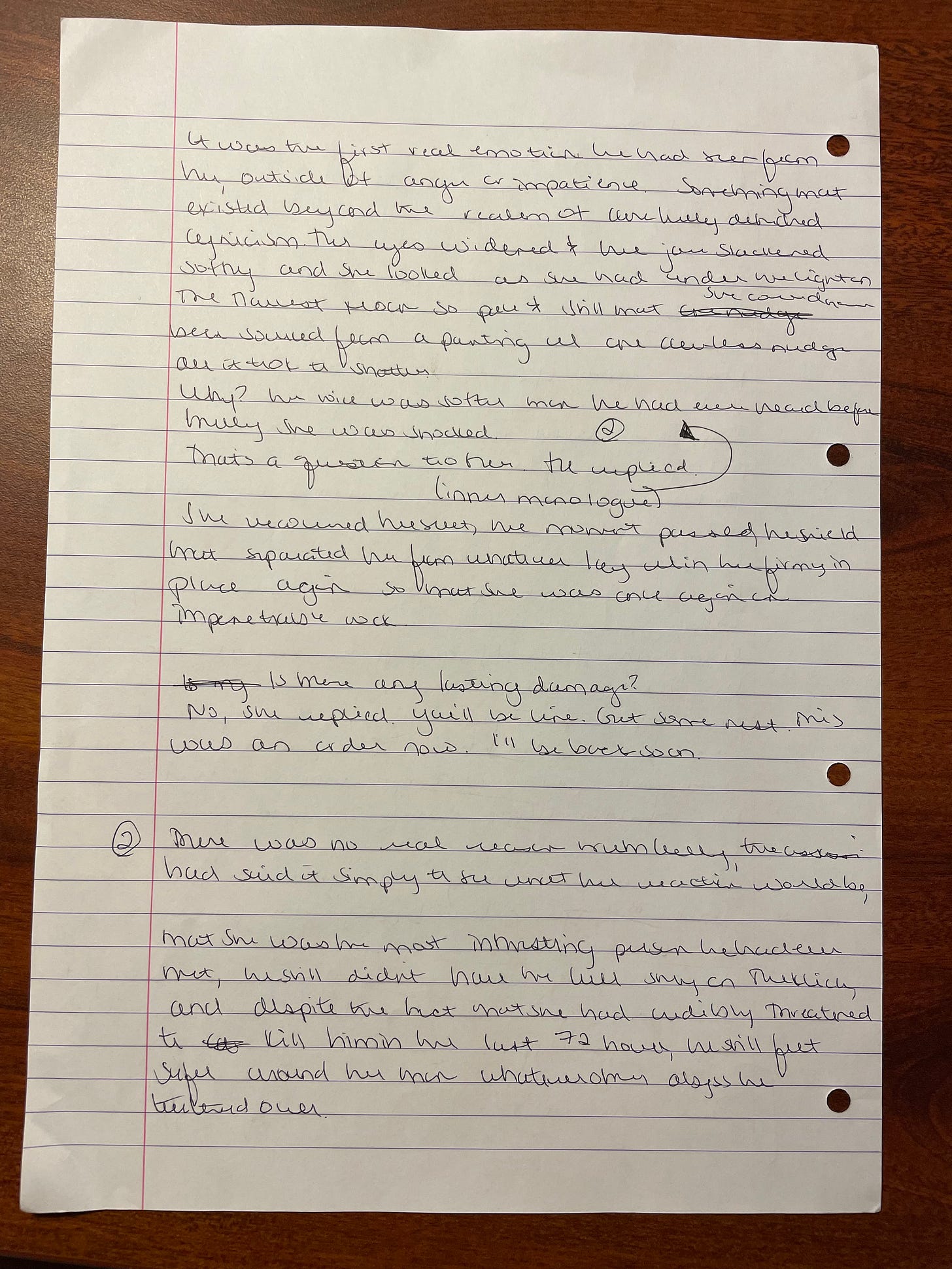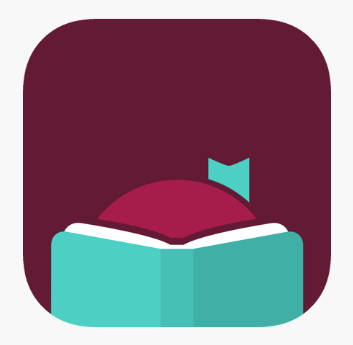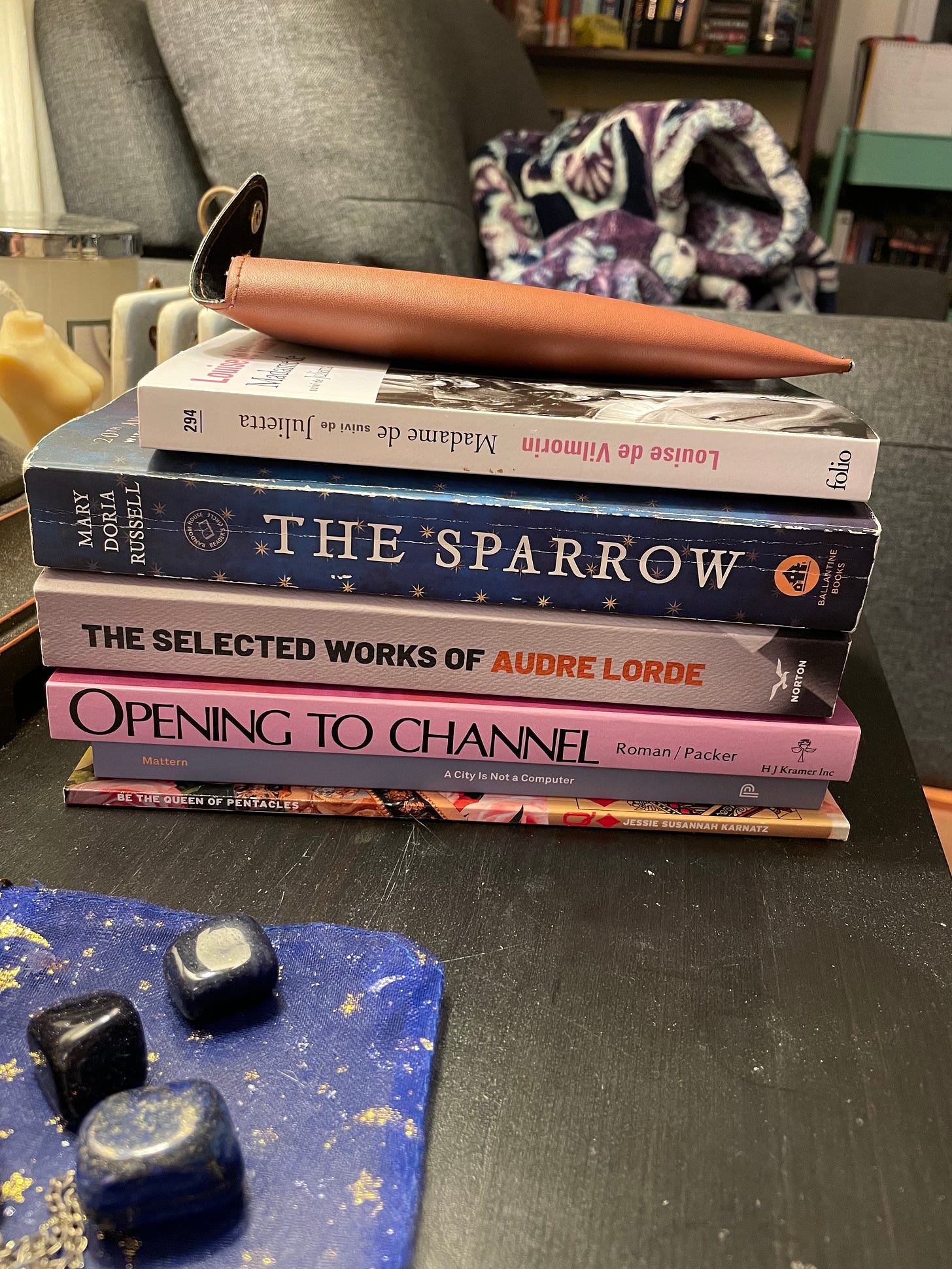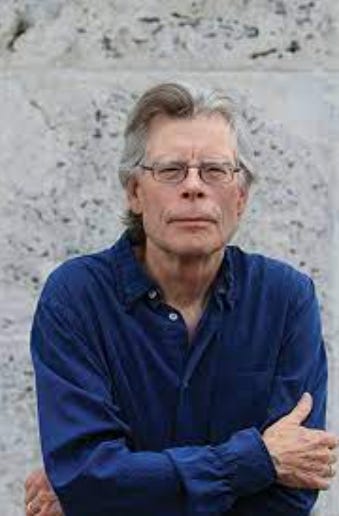I’m not great with audiobooks. There’s two strains of photographic memory in my family, and while I inherited the visual one, my brother inherited the audio one. He has perfect pitch and can hear something and then go play it on the piano, the little jerk. (Hi Chris I love you.) On the other hand, despite playing the flute and piano for years, I am not the best audio processor. I can find Middle C, but that’s it. Have me listen to something and then play it? Yeah right.
Whenever I attend a lecture, I hand write my notes.1 There have been scientific studies2 that have shown that you retain more information when you write it down, and that has proven true for me. Besides, it’s a tactile thing. I need something to touch, to be in my hands as I’m reading or processing information. Without it, words feel like gossamer strands slipping through my fingers.

Why am I bringing this up, you ask? Well, audiobooks are one of the main ways that those BookTubers or BookTokers or Bookstagrammers (I am literally rolling my eyes as I write this) manage to read so much year after year. In On Writing, Stephen King mentions that he reads slowly and still manages to read 70 books a year. To which I say, rude Stephen!!!3 I read quickly, by all accounts, and I can *only* make it through about 100 books a year. It’s the end of November as I’m writing this, and I’m behind on my yearly quota, having read only 87 out of 100 books. I’ll still make it to 100 by the end of the year because I’m stubborn etc, but my life would be much easier if I could just listen to audiobooks for hours on end.4 I can’t. The only exception is if I’m driving - because my brain has to work harder to process information, I end up staying more alert.
Why would you want to read more? In the (less controversial) words of Stephen King, “If you don’t have time to read, you don’t have time to write.”5 Maybe you want to read more books because you’ve gotten out of the habit. Maybe you want to start a reading habit. Maybe you want to finally read all those books you bought. Maybe you want to become a better writer. Whatever the reason, I have some suggestions for you.
A big caveat before we begin. If you are a full-time student, ignore this list. You’re just not going to have time to read beyond your coursework, and I don’t want you putting that pressure on yourself. Heck, when I was in college? I read maybe 2 to 3 books a year that weren’t required for class. This advice also applies to anyone going through ~a time~ in their lives. We all know what those are. No more explanation needed. Think of these as friendly suggestions for if you want to read more and you have the time and ability to do so.
Audiobooks
I was watching a video last year of a BookTuber talking about how they had read 164 books in a year. One hundred. And. Sixty-four. I literally cannot conceive of reading that many books. However, a really easy way to increase the number of books you read is via audiobooks, which is one of the way that these book influencers read so much. Have a long commute? Listen to a book. Walking your dog? Listen to a book. Cleaning the house? Listen to a book. Existing in any way shape or form? Read a book. This method does not work for me for the aforementioned reasons, but if you’re an audio processor, this will work great for you. There are many apps out there that have audiobooks, including but not limited to: Audible, Libro.fm, Everand, Libby, Hoopla. Hell, Spotify even has audiobooks now. I’m sure there are more. Point being, you have your choice of how to consume audio if that’s your preference.
Great for: audio processors, people who like podcasts, long drives, musicians
Bad for: me, people who are poor audio processors, folks who like having a tangible book in hand
Library Card


The Libby and Hoopla apps look like this, if you were unaware. It amazes me how many people forget the Library exists. Not only can you get books, but also, many libraries have other services too! I teach at a library, libraries often have free museum passes or other event tickets, and some even have tool lending libraries. Libraries are great!!! Protect them at all costs!!! And even if you know about libraries, are you aware that there are Library apps? Hoopla and Libby are the big ones, so if you’re not near a local branch, you can get books *digitally.* You just need an active library card, and you’ll then be connected to your branch’s collection. Let’s review here. You can get books *for free,* either digitally or in person. You can check out *multiple books* at a time, either in person or online. What’s not to love?
Great for: people who like free things, civil society, libraries and librarians
Bad for: There are literally no downsides. Go support your local library.
Become a Mood Reader
There is literally nothing worse than trying to force yourself through a book that you’re not enjoying. Life is too short to not read what you want. Also, if you’re interested and engaged in a book, you’re much more likely to finish it. And that’s the whole point! Finishing books! Take a second to think about what it is exactly you want to read, and who gives a fig about what you’re “supposed” to be reading. Read what interests you, whether it’s a book you’ve read ten times, or the new best seller or whatever Colleen Hoover has going on. I fully give you permission to DNF any book - including your book club book.
Great for: people with lots of different interests
Bad for: trilogies, series, anything that needs to be read in a certain order
Short books
Graphic Novels. Poetry. Short Story collections. Essay collections. Coffee Table Books. Picture books. Look it, I’m not judging. A book is a book no matter what kind it is. Take advantage of shorter books in your library and intersperse them with the longer ones. After all, you’ll add some variety into your reading list, and also increase the number of books you read. One of the BookTubers I follow does a Short Month Short Book challenge every year for the month of February where she reads books under 200 pages. I’ll link it, but it’s in French so I’m sure that will be *very* helpful for most of you. (Sarcasm)
Great for: reading diversely, upping the number of books you read yearly
Bad for: that long book you’re slogging your way through, big book fear
Set a goal
As I said above, I have a goal to read 100 books a year. That’s been the standard for the past few years, and before that, it was 52. Why 52? For the number of weeks in a year. Why 100? Because it’s a nice whole number. 52 books in a year is 1 per week, 100 is around 2. Whether it’s 5, 10, or 256 books, it’s much easier to work towards something when you’ve picked a specific endpoint in mind. Keep track of what you read, too! That way you can see the progress you’ve made and feel like you’re accomplishing something. Goodreads and The Storygraph are great places to do this. I personally prefer The Storygraph because it’s not owned by Amazon and has GRAPHS (which is a big selling point for me.)
Great for: Type-A folks, people who like lists, number nerds
Bad for: people who are not organized, anyone not motivated by numbers
Do as I say, not as I do

Current stack of reads on my side table. No I haven’t finished reading The Sparrow yet, don’t judge me. Read six books at a time. Some people cannot function this way, and that is probably for the best. I have too much going on in my head at any given time, and feel the need to overachieve at everything, including reading. Read two books, three books, however many you want. Sooner or later you’ll make progress on all of them and finish them and then won’t you feel special.
Great for: people with anxious brains
Bad for: people with normal attention spans
I hope this list was helpful for you. May one of these strategies help you to your reading goals. Let me know in the comments if any of these work! Until Friday, when I will have our next Artist Interview.
Everyone and their mother wishes I wouldn’t because I have truly awful handwriting. This isn’t hyperbole, this is a fact.
https://www.psychologytoday.com/us/blog/the-athletes-way/202103/4-reasons-writing-things-down-paper-still-reigns-supreme#:~:text=Jotting%20things%20down%20on%20paper,neural%20encoding%20and%20memory%20retrieval.
Another footnote doing its job.
King, Stephen. On Writing. Scribner, 2000. Pg 145.
To be fair to the audiobooks, I can’t listen to podcasts, either. Music is really the only thing audio that I enjoy. So it’s not you audiobooks, it’s me.
On the literal book flap.




